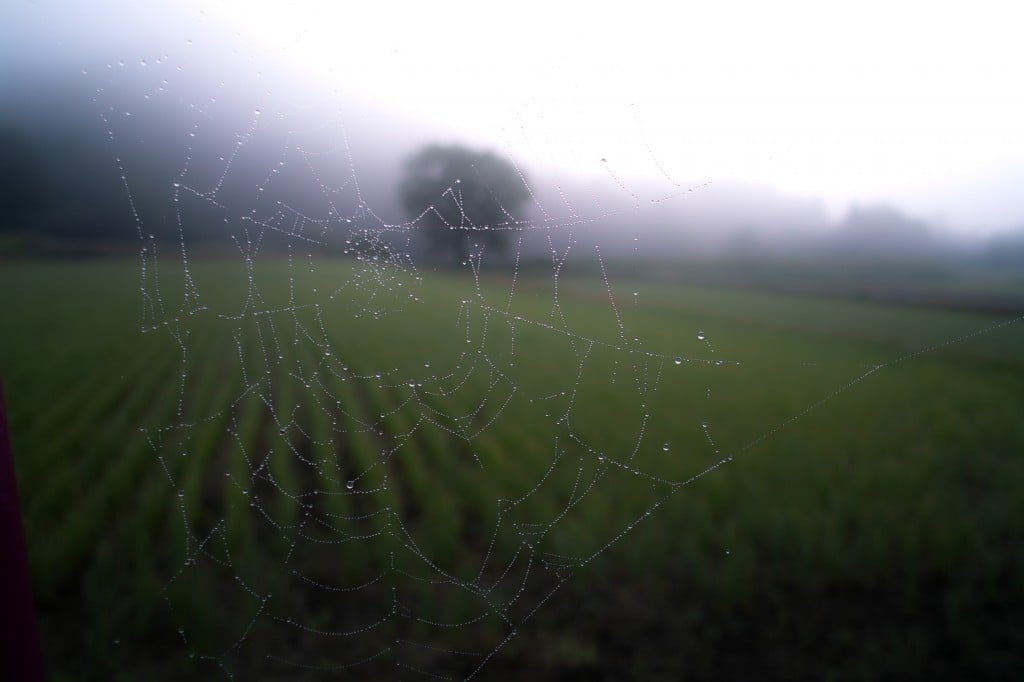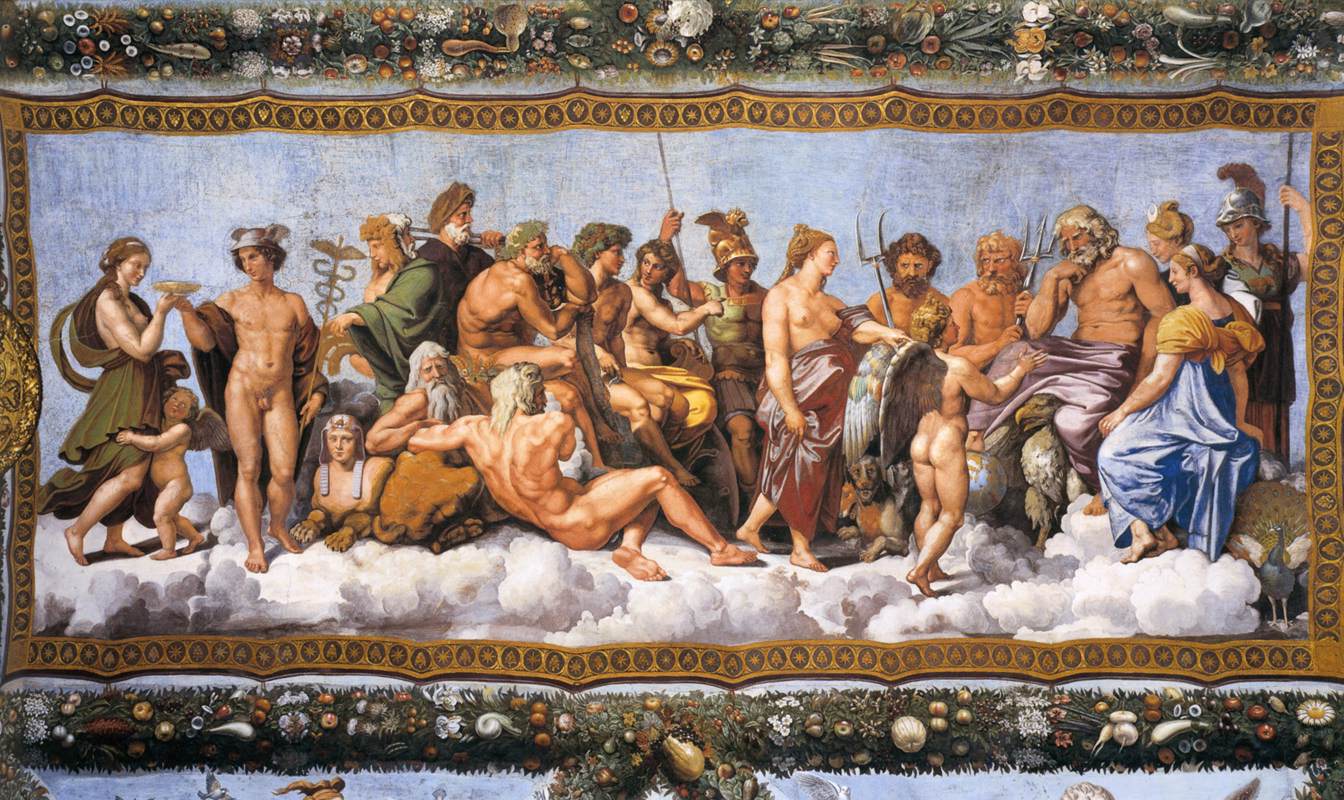Recently Rhyd Wildermuth, my co-conspirator behind the recent Many Gods West event, a conference for polytheists, posted about his experience of the conference. (I also have done so.) His piece provoked strong feelings – as most of his pieces do. In the comments of the piece and on his Facebook page, it is clear to me that people take issue with several things. Firstly, people take issue with Rhyd’s admission that some people thought Many Gods West (MGW) was an anti-capitalist gathering. Secondly, many people don’t seem to know how to respond to content that they neither fully agree with nor fully disagree with. Thirdly, there is an assumption that we must entirely agree and/or adopt an all or nothing attitude toward various issues. I’m going to address all three points.
Many Gods, Many Peoples, Many Expressions of Justice
Officially, on behalf of MGW as an entity, I would like to state that the gathering was not a formal anti-capitalist gathering. The only requirement for presenters was that they be polytheists. The conference was for “many gods, many peoples”.
Polytheism literally means many gods. That’s it. There is no political litmus test to pass in order to present at or attend MGW – nor to be a polytheist.
That said, I completely agree with Rhyd and the anonymous commenters that there was a not-so-subtle undercurrent of anti-capitalism at MGW. Part of that is because both Rhyd and myself espouse that ideology in various ways, but not necessarily in the same ways or to the same degrees. As con-conspirators of the event, our way of being in the world was reflected in the event.
But that many of the presentations had threads of anti-capitalism and political sentiment were a surprise to us. Only one of the talks when proposed to us had anything explicitly anti-capitalist written out in its abstract.
I see this undercurrent among polytheists as an organic and grassroots expression of the communities we served and represented. There is very clearly a movement among polytheists to address how we bring our beliefs and practices to bear in the world we live in.
However, let it be clear that while resisting dominant paradigms – be they religious, political, or economic – not everyone had the same ideas! Anti-capitalism, economic and racial justice, political resistance, ecological healing, ancestral restitution, and polytheist restoration are clearly topics that our wider communities are working out for themselves and they are expressing themselves in myriad ways.
I am sure there are plenty of polytheists out there who don’t have strong feelings about economics and would rather have their gatherings without explicit anti-capitalist talk. I think those people were present at MGW and they still had a great time.

Relational Polytheism
I wrote last about how my polytheism, like my feminism, will be intersectional, or it will be useless. My religious relationality is not just with the gods; it is also with my communities, my family, my friends. To be slightly hierarchical about it – my intersectionality goes vertical and horizontal.
I cannot in good conscience worship the gods I do without maintaining a preferential option for the oppressed, disenfranchised, and otherwise Othered. While I hesitate to speak for the gods, I’ll say with much confidence that Kali doesn’t care for the security and comforts I cling to out of an “I got mine” attitude. She asks for more from me and for others.
But my gods’ agendas and how I express my practices in the world are my responsibility. Your gods and practices might be calling (or not calling) you to different actions. There is also no “perfect” expression of these ideas and actions.
For example, I’m on board with Rhyd’s movement in the world. But I don’t always agree. His ideas are not always fully fleshed out – and I don’t need them to be! He doesn’t have children or dependents, and the actions he takes in the world are different than the ones I make. I do have children, so I can say “hey, have you thought of this particular thing that affects me?” And he, from the fringes, can inspire me to push farther than I thought was possible.
Discomfort from the Edges
This leads me to the second point I want to make. Those who lead from the fringes will not have all the answers nor speak for everyone. Prophets speak the difficult words we usually don’t want to hear. Our job is not to agree or disagree. If we wholly shout amen at every word then we are nothing but the choir to the preacher’s monologue.
What is needed is personal discernment, and that often requires sitting in the discomfort of holding a variety of ideas and levels of agreement or disagreement. And waiting. Discernment can take a long time. Years even. Ideas develop over time for individuals and for communities.
My ideas slowly percolate and I have to sometimes pick up an idea that makes me uncomfortable, try it on, and see what happens. Usually I learn something. Sometimes I change my mind. Often what I get is nuance or a new perspective. I always find that the all or nothing attitude is usually a set up for disaster and failure.
Your All is Not My All
Lastly, I want to address the idea that to be effective in working toward any kind of justice one must be “all or nothing.” To be fully committed to economic or environmental or any sort of social justice movement does not require adopting an all or nothing way of life. Let’s look at breastfeeding for an intersectional example. If you’re not a parent, hang with me. Women who have had children, I’m sure you know where I’m going with this.
It turns out how you feed your infant is a Big Deal. Especially on the internet. If you are not 100% breastfeeding on demand then some people are going to jump down your throat and tell you you are failing, that you didn’t try hard enough. If you are, plenty of people will also tell you you’re gross and boobs are for fun only. If an ounce of formula ever passes your infant’s lips, plenty of people will jump down your throat and try to convince you that your child will grow up ugly, diseased, and stupid.
My experience with my first child (because circumstances were different with the first than they were with the other two) was that by breastfeeding 70-90% of the time (and that meant formula for the other 10-30%) I was able to sustain a happy and healthy long term nursing relationship. If I had tried to be 100% I would have ended up entirely not nursing, or being miserable and bitter the whole time.
My “not 100%” breastfeeding experience later led to my being able to do so with the other children. Again, if I had not “failed” at the “lesser” efforts I would most certainly not have succeeded at the later ones.
There are many deep and disturbing social, environmental, and health issues involved with infant formula. But there are also a host of hurdles to breastfeeding, including lack of support and economic issues, such as not having access to pumps or time and space to pump, that contribute to the lack of breast feeding options.
As a feminist I know that not all women are able to or have the resources to exclusively breastfeed. Many want to and cannot. Some don’t even know it’s an option or a possibility. Some don’t want to. I look at anti-capitalism efforts in much the same way.
Bringing it back to wider politics, not all of us want a different socio-economic model. Many of us don’t know that other options are even a possibility. Some would like to change the world but don’t know how to work toward an alternate future. A lot of us have varying degrees of knowledge, support, and resources and so we approach our politics and practices one piece at a time. But each of those efforts allows us to make yet more efforts as we gain strength, wisdom, knowledge, and support for the next set of steps.
The Value of Prophets and Communities
We need people rallying on the fringes, reminding us of promises we’ve made, heralding coming crises, and encouraging us to press more deeply than we think we can. We need these people to provoke us toward new thinking and push us out of our comfort zones. People on the fringes are part of our beloved communities.
We also need communities in which to work out how to support one another, hold ourselves accountable, and prepare for our futures.
We need discernment, as individuals and communities. We need gathering spaces, like MGW, where we can listen to new ideas and discuss amongst ourselves, support one another, and celebrate together.
I need people to push and prod me, so that I can stretch further. This is beloved community.
Crystal Blanton won’t stop talking about black lives. Sometimes I can’t handle the grief and rage of that reality – yet I keep reading and feeling and growing. Rhyd Wildermuth won’t stop talking about the social and environmental and spiritual damage caused by capitalism. My husband is self-employed, we own a house and a car, have children, and interact with capitalism daily. I sit in my discomfort and try to figure out how to best move forward in my world. John Beckett won’t stop talking about the polytheist restoration, something I’m not entirely in agreement with, but I keep reading because he is my community, this matters to him, and I can’t hone my ideas in an echo chamber.
While one does not have to be “political” to be a polytheist, one’s politics are woven into your life and your actions in the world. Do not be afraid of others’ politics. Do not be afraid of engaging with the ideas. You don’t have to take those ideas on. You don’t have to be a polytheist the way others do it.
But don’t ignore politics or the prophets either.
This is beloved community. These prophets are my community. This is how I grow. This is how we grow.














